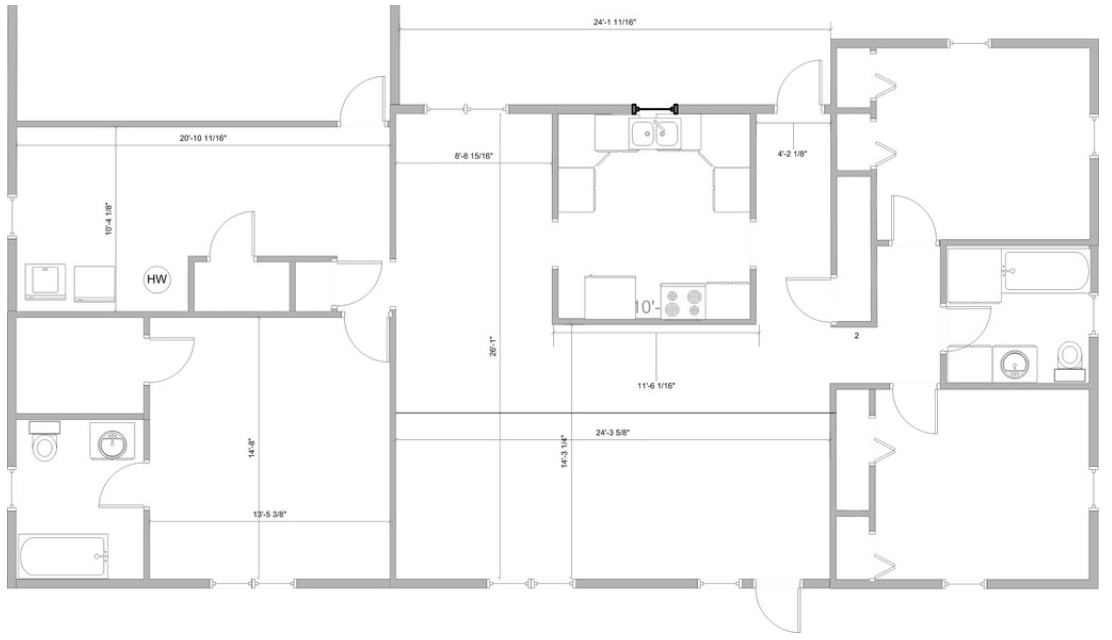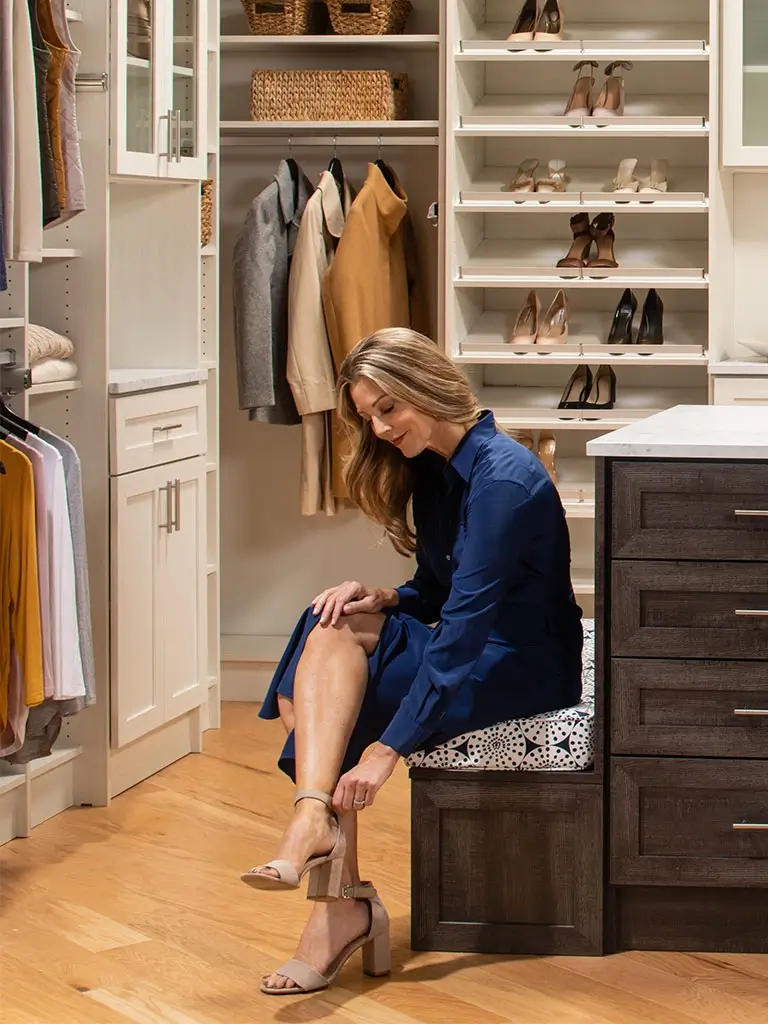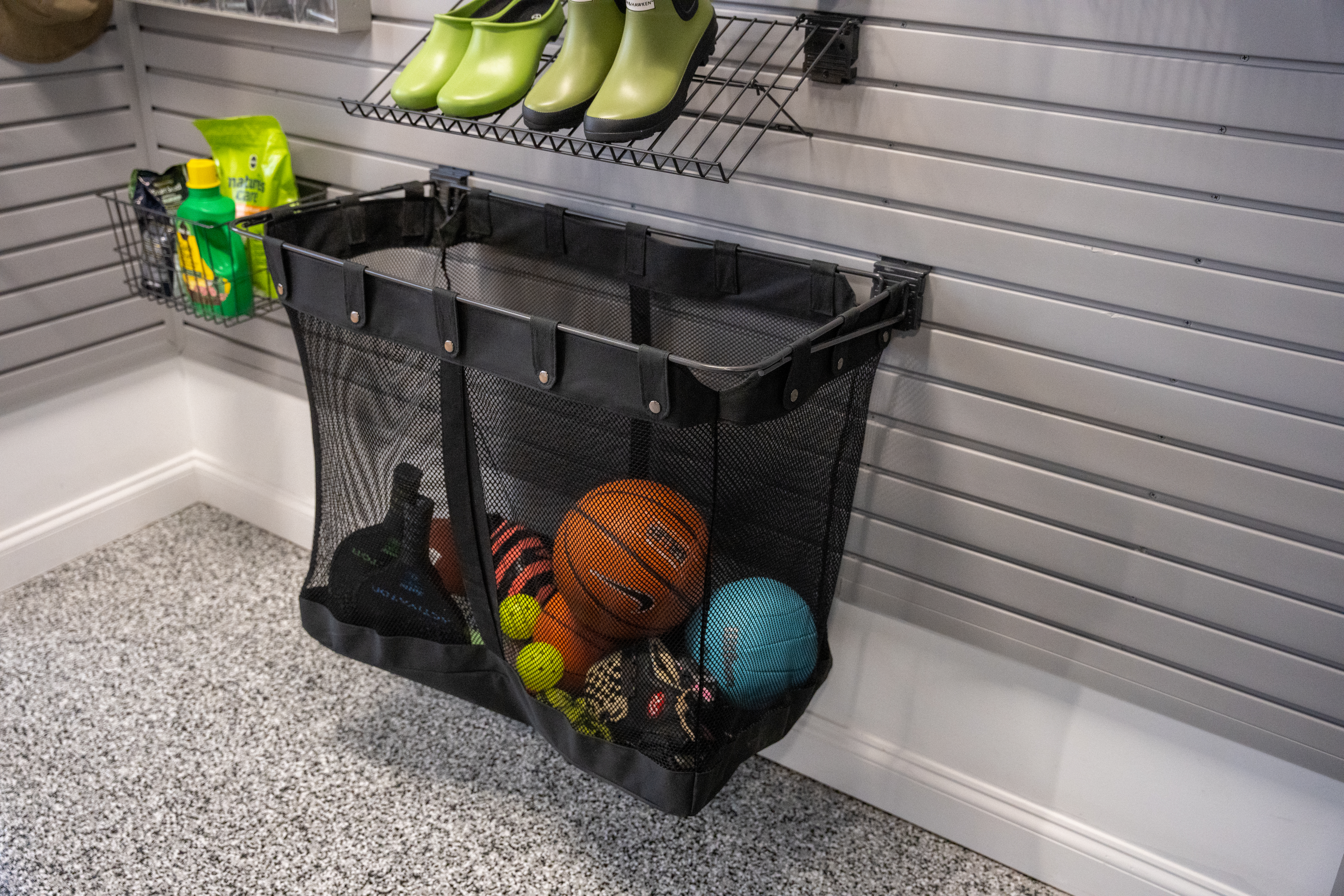
Walk In Closet Dimensions: A Design Idea for Every Shape and Size
4 minute read, by Francheska Arcas, on Feb 6, 2018
Check out these expert custom design tips on how to make the most of your walk-in closet based on its dimensions.
Walk-in closets come in three common dimension ratios: small and square, long and narrow with double hanging space, and large with an overabundance of free walking space. Each of the three layouts comes with its own challenges. Homeowners get to know firsthand the quirks of their particular walk-in closet size and are often shocked and excited to discover that there is a way to improve the functionality and flow of these often-neglected rooms.
Because our designers at Closet America aren’t interested in knocking down walls, we’ve become experts on maximizing the available storage volume in each of these layouts. Below you’ll find a few of our small walk-in closet ideas and our best design tips for making each dimension ratio work better for you in your upcoming custom closet investment.
Drafting Insights
Interested in drafting walk-in closet floor plans from scratch? Look for red boxes like this one below. Each contains a basic design element that architects use to draft a functional and stylish walk-in closet.

5 x 5: Maximizing the Bare Minimum
The small and square walk-in closet tends to vex homeowners the most. We call these “bare minimum” walk-in closets, because they hold hanging storage on only two adjacent walls and offer just enough walking space to turn around in. In truth, you’ve got barely any more storage space than you would in the average reach-in hall closet—and a deep reach-in might even be preferable. But we all have to work with the minimum closet dimensions we’ve got!
Drafting Insight:
Are you considering adding double hanging rods? Plan on aligning them at around 40 and 80” on a vertical wall.
As plenty of DC-area townhomes and single family residences were designed with these small and square closets, we’ve grown very comfortable making this kind of space uber-functional. We usually recommend our clients install multiple banks of double hanging rods, especially if they’re splitting the closet between his and hers. Also, more than anywhere else, it’s important that you install shelves all the way to the ceiling to maximize wall space.

6.5 x 9: Double the Hanging Space
This standard walk-in closet layout involves two long walls of parallel hanging space, with one short wall at the far end. This room couldn’t exactly be described as “generous,” as plenty of spouses discover when attempting to maneuver during the morning rush. Whether you’re dividing the room lengthwise between partners or you’ve come up with some other configuration of wardrobe elements, it’s easy for this space to become stuffed. An experienced closet company is your best bet for transforming this space without adding even more clutter.
Drafting Insight:
3’ walking space is considered the minimum allowance in a modern walk-in closet. If you want space to get dressed inside the closet itself, 4’ is ideal.
We’ve designed hundreds of these long rectangular walk-in closets in the past year alone. Our clients are usually excited about including open shelving and double hanging rods that will instantly multiply storage volume. If our clients want drawers included in their design, the short wall is the perfect space—it prevents drawers on opposing walls bumping into each other (or you) in the middle of the walkway.

12 x 14: Taking an Island Trip
New construction homes are often equipped with walk-in closets that are nearly as large as the master bathroom. If you happen to own an older home that comes with this amount of storage luxury, you remember what it felt like to walk-in the door for the first time and realize you’ve got an entire dressing room at your disposal. The main challenge with the “oversized” walk-in closet is that most of the square footage is open, unused floor space.
Drafting Insight:
Hanging clothes require at least 26” of floor space. Any less, and hangers will interfere with your walking area.
Unless you’re wanting to include a chaise lounge or are simply dedicated to having space to twirl on the hardwood floor in sock feet, that space is essentially wasted. One way to remedy this first world problem is to center your custom closet design around a center island. You’ll gain valuable storage space with drawers and cabinets as well as another useful work surface– perfect for folding clothes, planning outfits, or displaying knick-knacks.

Mastering Your Walk-In Closet Dimensions
Whether you have a bare minimum, average closet size, huge, or oversized walk-in closet included in your home’s blueprint, each set of dimensions is easily maximized with the help of custom closet design. Any “stock” closet blueprint, no matter how large, isn’t living up to its full potential. With the addition of perfectly fit shelves, rods, cabinets, and shoe storage, you can transform any size closet into the functional space your expanding wardrobe needs.
Drafting Insight:
Rods for hanging long garments can be placed at 72” on a vertical wall. Plan on adding more shelves above this height to maximize your vertical space.
Eager to work with a designer who knows exactly how to maximize every inch of your walk-in closet? Sign up for a free design consultation with Closet America. One of our design experts will meet with you in your DC area home to determine which strategies work best with your closet dimensions. You’ll be shocked how much storage space you gain with the help of creativity and custom shelving– no matter how small your walk-in!
Lead image source: Flickr user cypher386



